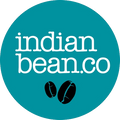Neha Bhayana, TNN | Aug 2, 2015, 12.03AM IST
Every morning, Delhi art gallerist Mandira Lamba (34) perks up with a fresh shot of macchiato brewed in her pricey espresso machine (Rs 1 lakh), with beans sourced from El Salvador. She savours the drink before rushing off to drop her son to school and heading to her studio. "These are my moments in heaven," she says.
In another part of the city sound recordist Ayush Ahuja (33) starts his day pulverizing Watapi coffee beans from the Biligiri Rangana Hills in Karnataka, then brewing them in his AeroPress. So particular is he about this six-minute ritual that he never lets his wife fix his morning decoc.
Lamba and Ahuja are of the new camp of Indian coffee drinkers, who cringe at cafe-served cappuccinos and balk at assembly-line Americanos. They prefer their brews black, freshly roasted and made with signature, single-origin beans sourced from a single field, estate, a city or even (to the annoyance of connoisseurs) a particular country, and sold unblended with other beans. They're the single malts for the coffee-crazed.
"We're entering the third wave of the coffee drinking experience in India," observes Sunalini Menon, a coffee quality control expert, who likens exclusive coffees to artisanal wine. The first wave peaked when instant coffee hit the shelves in the 1960s, while the second wave was brought on by coffee chains with their cappuccinos and lattes.
True Brew
That India's coffee drinking has evolved is evident. Shelves at supermarkets like Foodhall and Hypercity are packed with SO coffees procured from Coorg to Columbia. Five-stars like Taj, Oberoi and Dusit Devarana and fine-dining restaurants like Mumbai's The Table offer coffees from Chickmagalur and Jamaica. Rooms at Mumbai's Palladium Hotel offer espresso machines — not just hot water kettles — and a selection of premium coffees instead of sachets of instant coffee. Cuppings (coffee tastings) and coffee-brewing workshops are now commonplace.
Last month, Delhi's Khan Market got a first-of-its-kind wine and coffee bar, Perch. Here, customers can choose their SO coffee and also their brewing method — pour-over or the French press. "At least 10 to 12 customers order our specialty coffees daily," says owner Vaibhav Singh, adding that they will introduce coffee-based cocktails and sangrias soon.
Even Cafe Coffee Day, better known for its mass-produced frappes, has opened 'boutique cafes' — CCD Square — in Mumbai, Delhi, Bangalore and Chennai. The outlets offer seven SO coffees along with suitable food pairings. "The Ethiopian Sidamo, a mild black coffee with hints of caramel and chocolate, is the most popular,' says Bidisha Nagaraj, group president marketing at CCD.
Site specific
At least four e-stores selling SO coffees were launched in 2013, and demand's growing. Delhi-based Blue Tokai which sources coffee from estates in Karnataka and Tamil Nadu, sells around 900 kilos a month. Theindianbean, run from Mumbai and Mysore, hawks 500 kilos from Coorg and Kodaikanal, and Bangalore-based FlyingSquirrel gets 400 orders for SO coffees and blends monthly.
For richer, for pourer
Delhi's Kaffa Cerrado retails SO coffees from South America, Africa and East Asia. A 250-gram pack of these imported coffees is priced between Rs 800 and Rs 1,050. Indian SO coffees cost Rs 300 to Rs 450 for the same quantity. These specialist stores keep no stock sitting. They roast coffee beans on order, grind per requirement — depending on the brewing device the buyer uses —and dispatch the pack within 24 hours so it stays fresh. They also retail grinders and brewing devices, priced between Rs 1,500 and Rs 35,000.
Crop-to-cup story
"People are appreciating the complexity of coffee," says Indianbean's boss Kunal Ross, adding that coffee has 1,250 taste notes compared to 350 in wine.
Pick any single estate coffee and you'll find a detailed note on its taste profile on the packet —"wine-like acidity, with a full body and caramel, malt finish" — as well as little-known facts about the plantation it originated from.
One of the more intriguing stories comes from Veer Attikan coffee. Named after the notorious bandit Veerappan and the Attikan estate in Karnataka, this bean grows in the Billigiri Rangana mountains south of Mysore. Veerappan used this hilly terrain as his hideout for nearly two decades before he was shot dead in 2004. The management of the Attikan estate did not dare visit the plantation during his reign fearing abduction. But they're now gaining fame worldwide for this uniquely spicy coffee. In India, Blue Tokai (which will be setting up an interactive roaster-cum-coffee bar near Saket) sells this coffee under the name 'Attikan Estate coffee'.
Ayush Ahuja's favourite coffee —the Indonesian Kopi Luwak — is also widely known as 'cat poop coffee' because the berries are eaten and excreted by the Asian Palm Civet. "These cats eat only the best beans which we humans cannot pick out," he says, adding that it is the 'world's most expensive' coffee. There's a downside to this rarified addition though, admits Ahuja. "When friends now ask me to join them for a coffee, I refuse, because I can no longer bear the burnt, over-boiled concoctions served at cafes."
Link: http://timesofindia.indiatimes.com/home/sunday-times/Blends-are-so-has-bean-/articleshow/48311384.cms

Leave a comment